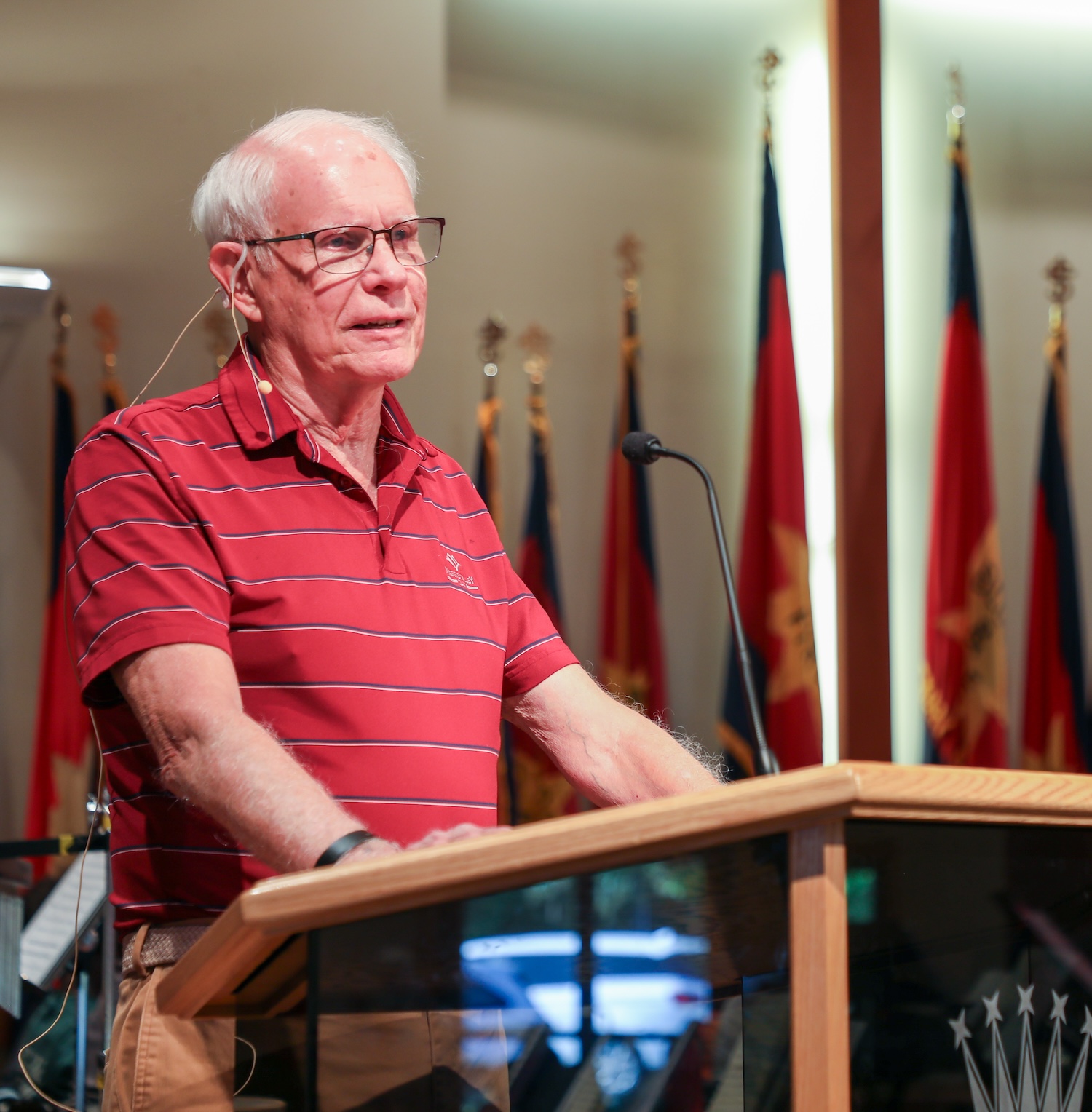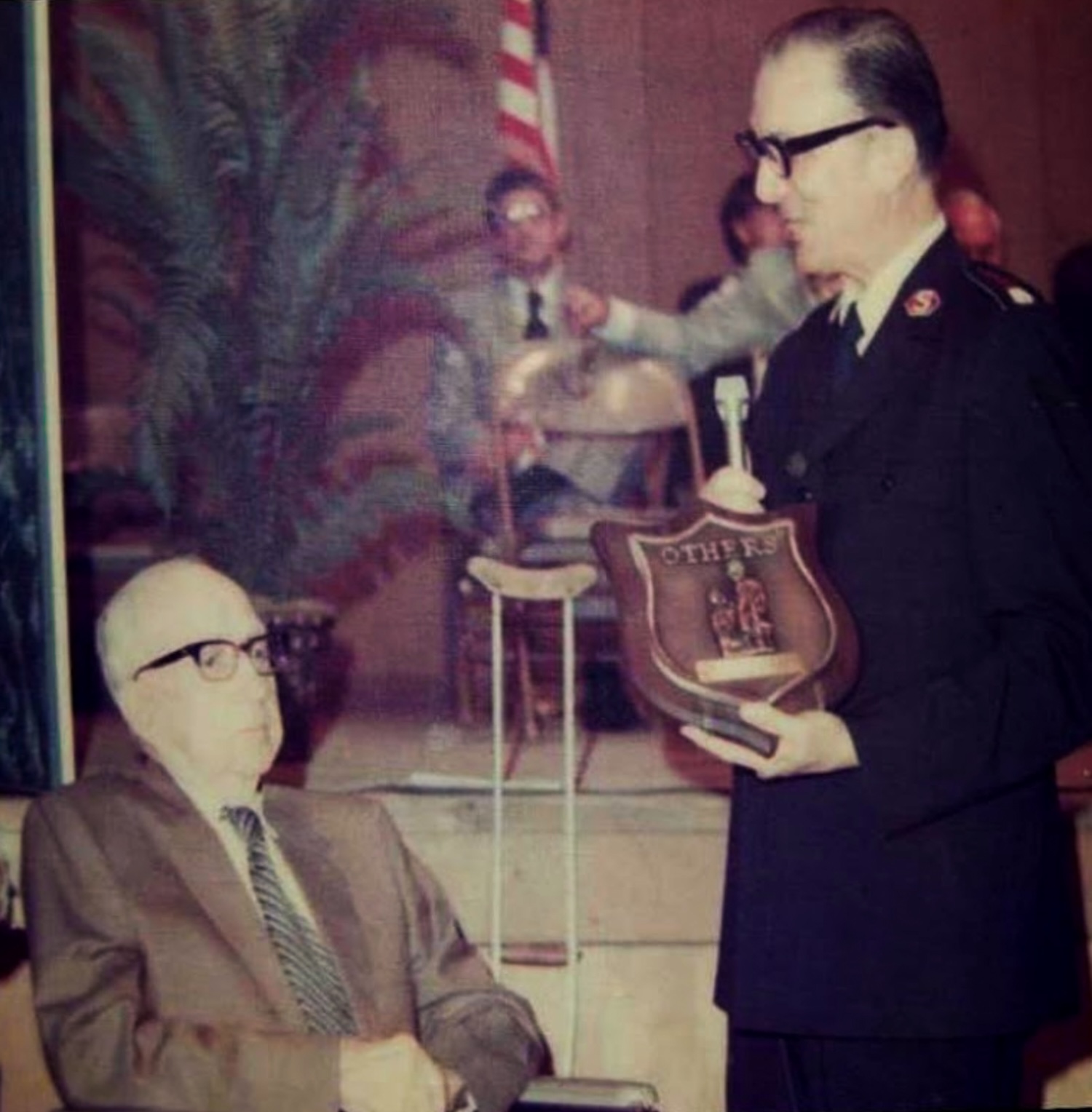The Ripple Effect of Helping Others: The Development of Camp Walter Johnson


The 50th anniversary of The Salvation Army’s Camp Walter Johnson took place over Labor Day weekend 2024. It was my privilege, being divisional youth secretary in June of 1974, to share the story of the camp’s namesake: Walter Johnson. Walter Johnson’s story is a wonderful challenge to all Salvationists to be faithful in helping each person who comes to us in need—it may be part of a ripple effect that leads to something much greater than we can imagine.
Early in Walter Johnson’s life, tragedy struck. Two older brothers were literally playing ball with Walter— he was the ball. A missed catch found him on the ground with a broken back. He was never again able to walk upright. But as sometimes happens, tragedy opened a new door. When Walter graduated from school, his brothers gave him a fully operational sawmill. It was from this gift that Walter Johnson developed his wealth.
One day, his mill received a rush order for lumber. Walter was informed that a vital piece of equipment necessary to complete the order was broken. He hurriedly took the equipment to a friend’s machine shop for the repair.
Just as the shop owner put his mask on to begin the repair, the front door opened, and a Salvation Army War Cry seller appeared. The shop owner calmly took off his mask and walked to his office to get his money. He gave his donation to the War Cry seller, then walked back to continue his business with Walter.
But before putting his mask back on to finish his repair, the shop owner paused to tell Walter a story.
A 15-year-old boy was having a tough time living with a mean-spirited stepfather. One day he finally decided to run away from home. He began to hitchhike to Texas, planning to fulfill a dream of becoming a cowboy. When he made it to the Mississippi River, he gave his last bit of money in exchange for a ferry ride across. After two days with very little food, no bed to sleep in, and wearing worn-out shoes, he decided to return home.
He made it back to the Mississippi but had no money for the ferry fare. Explaining his situation to the ferry master, the boy was told there was someone who would pay his way on the other side. He was on the ferry approaching the opposite shore when he saw the man in a blue uniform with red epaulets—the corps officer from Vicksburg, Mississippi.
Once they landed, the fare was paid, and the Salvation Army officer took him to the emergency shelter. Two bowls of stew later, the young boy was shown to a bed and given a clean towel. The captain’s good night words included, “I need to talk to you in the morning.”
After the boy recounted his story, the captain gave encouraging words on how to better handle life at home. He was given new clothes, a new pair of shoes, and enough money to get back home.
Pausing for a moment after this tale, the machine shop owner looked Walter Johnson in the eye and said, “I know that story well; that boy was me. Since that time, I promised I would never refuse The Salvation Army when I was approached for help.” He put his mask back on, and the equipment was quickly repaired as a thoughtful – and rather astonished – Walter looked on.
One day sometime later, a bent-over man dressed in overalls showed up at Divisional Headquarters (DHQ) in Charlotte asking to see the man in charge. What preliminary words were spoken, I don’t know, but eventually Walter Johnson handed the divisional commander a check for $100,000 and said there would be more coming.
Some years later, Johnson’s business manager reached out to DHQ saying that Walter Johnson was planning to allocate 800 acres of prime timberland in multiple locations around the Carolinas to The Salvation Army in his will. With talks of an Army-owned, specifically designed youth camp already in the works, DHQ asked Johnson’s business manager if any of those properties would be suitable. The response came back that one site was on the water and would make an excellent location for a camp.
The Salvation Army asked the business manager if he would approach Mr. Johnson about giving half of the property now for the development of a camp. The reply was even better than anticipated: they could have it all now, without delay! The camp site was retained, and the rest was sold to pay for the camp’s development.
Now, 50 years later, we can thank a Salvation Army captain from Vicksburg, Mississippi who helped a runaway. We can thank God’s timing for a War Cry seller faithfully making his rounds and arriving at a machine shop where the owner was willing to stop an urgent task to buy a War Cry, fulfilling a promise made long ago. All put together, it produced a ripple effect that brought Walter Johnson to a place that made it possible for thousands of young people to experience joy and God’s life-changing presence at Camp Walter Johnson.
